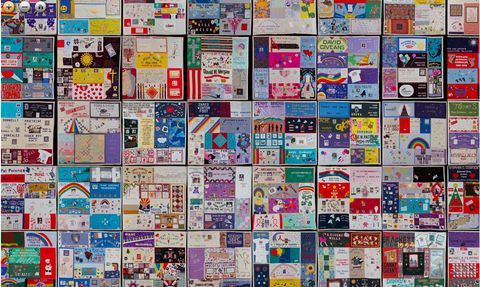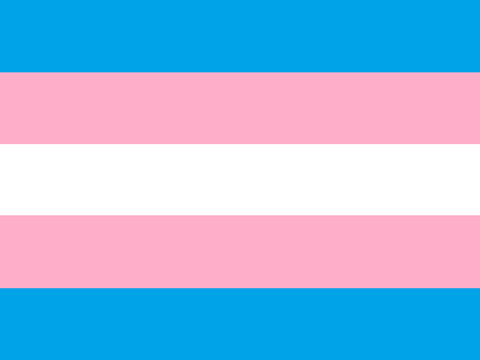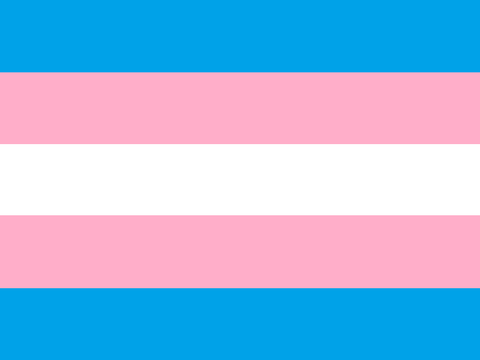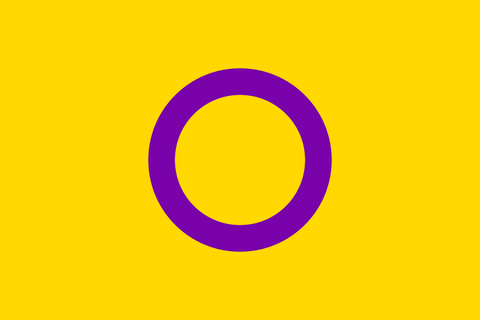Does repealing Section 377A still matter?
| Updated on
[UPDATE] On 21 August 2022, Prime Minister Lee Hsien Loong has announced that the Singapore government will repeal s377A. Read more
In February 2022, Singapore’s Court of Appeal dismissed challenges to repeal Section 377A, a Victorian era law that criminalises sex between men.
Yet there seems to be a silver lining within the court ruling: Chief Justice Sundaresh Menon declared that Section 377A is "unenforceable" unless the Attorney General announces that they will begin enforcing it (if this sounds strange to you, it’s because it kinda is).
On the surface, this seems like the best compromise for all parties involved: the law is retained out of respect for those who are hostile towards LGBTQ+ identities, yet it can (sort of) never be used against LGBTQ+ folks.
So does repealing Section 377A still matter at all?
The short answer is: yes. Because Section 377A isn’t really about sex between men.
377A isn’t about sex between men
When Section 377A first came under the spotlight in parliament back in 2007, the Ministry of Home Affairs revealed that the law actually hadn't been enforced in years. This means that by now, Section 377A hasn’t been used to police sex between men for at least 15 years.
Yet strangely enough, the state continues to insist that there are legitimate reasons for retaining the law.
The Attorney-General’s Chambers, for instance, stated that Section 377A sends “a certain moral signal” by its mere existence, and advances a “legitimate and reasonable” state interest. Moreover, Singapore’s courts have repeatedly explained that Section 377A serves the purpose of safeguarding societal disapproval of homosexual behaviours.
In other words, Section 377A appears to no longer be about policing sex between men, but instead be about sending a strong signal that homosexuality — and by extension, queerness — is immoral. And this signal isn’t just some abstract idea — it has real, discriminatory implications on the daily lives of LGBTQ+ Singaporeans.
Because when LGBTQ+ identities are “legally” deemed to be immoral, the state has the authority to enact and enforce a wide range of policies that erase and discriminate against LGBTQ+ people here.
This is the real impact of Section 377A — and why it needs to be repealed.
Actively-enforced policies discriminate against LGBTQ+ Singaporeans
Even though politicians have repeatedly emphasised that Section 377A isn’t actively enforced, they left out the fact that many state-sanctioned policies actively discriminate against LGBTQ+ people. These discriminatory policies affect nearly all aspects of daily life in Singapore.

Media representation: IMDA removes positive LGBTQ+ representation
The Infocomm Media Development Authority (IMDA) censors positive portrayals of LGBTQ+ characters from free-to-air TV, streaming services, movies, radio stations, and more.
For instance, one of President Obama’s interviews was censored because of his pro-LGBTQ comment, and movies such as MCU’s Eternals (M18, not because of the straight sex scene, but because it featured a gay couple with a kid) and Love Simon (R21, when there are no sex scenes) are heavily suppressed.
IMDA, however, freely allows negative portrayals to air — and this is why outdated negative stereotypes such as “gay people are pedophiles” persist in local entertainment content today.
A 2020 study found that exposure to LGBTQ+ representation in media increases people’s acceptance of LGBTQ+ individuals. This means that IMDA’s removal of queer portrayals likely decreases Singaporeans’ acceptance of their queer family members and increases the risk of familial rejection, one of the key predictors of LGBTQ+ suicide.

The way IMDA erases LGBTQ+ identities from the media is insidious, and you can read more about it here.

Education: Schools bully and erase LGBTQ+ students
Many public schools in Singapore are not safe spaces for LGBTQ+ children to grow up and learn in.
To begin with, the Ministry of Education (MOE) made sure that homosexuality is always discussed with the context that sex between men is illegal (due to Section 377A). MOE also removed external vendors who didn’t condemn homosexuality, and schools till date continue to ignore the existence of LGBTQ+ people in sex-ed classes.
But the extent of LGBTQ+ erasure goes beyond sex-ed classes. Many teachers have come forward with stories about how they were compelled to reject LGBTQ+ identities and prevented from caring for LGBTQ+ students. These teachers believe that they will be blacklisted by MOE or their superiors if they choose to affirm their queer students.
Even school counsellors — whose main job is to provide safe spaces for students — are allegedly prevented from affirming LGBTQ+ students and required to report LGBTQ+ students to their parents and school management. If an LGBTQ+ student turns to their school counsellor for help because their parents are anti-LGBTQ+, the counsellor will very likely be forced to report them to their parents anyway.

Less than a third of transgender students reported feeling safe at school. When MOE and its school policies prevent educators from caring for LGBTQ+ students, it’s easy to see why.

Healthcare: Policies leave LGBTQ+ people behind
Healthcare policies that affect LGBTQ+ individuals seem to not be set based on our latest understanding of medical science.
Take transgender healthcare, for example.
Many reputable scientific studies have shown that trans-affirming healthcare such as hormone replacement therapy (HRT) and sex reassignment surgery (SRS) are extremely effective at reducing the suicide risk in transgender youths and improving their quality of life. However, HRT is incredibly difficult to access, and SRS is not available here.
Many transgender youths are forced to turn to black markets to self-administer their life-saving HRT medication. To them, the odds of death from a miscalculated dose are lower than that from suicide.
Transgender individuals also have to seek SRS overseas, because — likely due to state policy changes — public hospitals stopped offering them since 2014, despite Singapore’s history as a regional hub for SRS in the 1980s.
The problems don’t stop with transgender healthcare.
The Ministry of Health appears to give organisations a wide berth when they spread misleading medical information to medical professionals about LGBTQ+ identities.
For instance, one such radical group has been conducting “medical seminars” for healthcare professionals that perpetuate fake medical information about LGBTQ+ identities. A guest speaker, “Dr Julie Hamilton”, has been described by her patients as a “quack”.



Housing, workplace, and other public policies
Many other state policies put LGBTQ+ individuals at a significant disadvantage.
Same-sex couples, for instance, are excluded from public housing until they are 35 years old, which means that they have to wait up to 10 years longer, and pay up to 65% more (for a resale flat). 80% of Singaporeans live in public housing, and housing accounts for nearly 20% of the cost of living in Singapore.
Workplace harassment of LGBTQ+ individuals is prevalent, and no proper legal framework exists to protect LGBTQ+ employees from unfair dismissals. The Tripartite Alliance for Fair & Progressive Employment Practices (TAFEP) has confirmed their unwillingness to include protection for LGBTQ+ employees in their official guidelines.
Section 377A’s moral signal affects policies, which affect LGBTQ+ lives in Singapore
The point is, in almost all aspects of public services and policies, you can probably find regulations and rules that are hostile towards LGBTQ+ individuals. And they often draw legitimacy from Section 377A.
When Section 377A is allowed to signal the “immorality” of LGBTQ+ identities, ministries and policy makers are given implicit authority to enact and enforce discriminatory policies that endanger, erase, and persecute LGBTQ+ people.

The way forward: a full repeal of 377A
There are hints that the Singapore government will make imminent changes to Section 377A. Law and Home Affairs Minister K. Shanmugam said in March this year that the state is considering the “best way forward” for Section 377A, while considering differing opinions on LGBTQ+ rights.
However, the minister also commented about avoiding “sudden, destabilising change”, which means that a full repeal of Section 377A might not happen.
A partial decriminalisation of sex between men could happen, where gay sex is decriminalised with an unequal age of consent, meaning that the age of consent for gay sex would be higher than that for straight sex (e.g. 21 years old vs. 16 years old). Some countries — such as the United Kingdom, Australia, and Hong Kong — have adopted partial decriminalisation before they fully decriminalised gay sex years (often decades) later.
But in Singapore’s unique context, partial decriminalisation brings more problems than it solves.
Partial decriminalisation makes things worse
To begin with, the context in Singapore is acutely different from other countries that adopted partial decriminalisation. The state has not arrested queer men under Section 377A for at least 15 years — this is public knowledge communicated through a promise in 2007 by the Prime Minister, a confirmation in 2018 by the Attorney General, and a legal ruling in 2022 by the highest court of the land.
This means if partial decriminalisation of gay sex were implemented, it will in effect introduce actual criminalisation of gay sex for people who fall under the age of consent. In other words, if the state were to partially decriminalise gay sex for people aged above 21, they will likely have to start enforcing, investigating, and arresting people for gay sex between the ages of 16-21. This makes the situation significantly worse off for young queer couples who were previously left alone.
Further, Section 377A (in its current form) isn’t about sex at all. A partial decriminalisation will do nothing to remove any of the existing discriminatory policies enacted and enforced by the state. If gay sex were made a crime for folks below 21, IMDA can continue censoring queer representation, schools can continue erasing and bullying LGBTQ+ students, and healthcare for young LGBTQ+ people (who are most susceptible to suicide ideation) will continue to lag behind medical best practices. The situation would not have improved at all.

Even if partial decriminalisation paves the way towards full decriminalisation of sex between men (and discriminatory policies), the price to pay in the meantime is incredibly high. It took the United Kingdom 34 years to go from partial decriminalisation in 1967 to full decriminalisation in 2001. Hong Kong took 28 years to move from an unequal age of consent in 1991 to full decriminalisation in 2019. This means any partial decriminalisation will likely lead to decades of persecution — and young LGBTQ+ folks are likely to pay the price.
Partial decriminalisation brings more problems for the queer community than it solves. The only way forward where meaningful progress is achieved is a full repeal of Section 377A — anything else is likely nothing but a smokescreen for the state to claim mock progress without actually helping the community.
It’s time for the state to walk their talk
At a 2018 business conference, Minister Ong Ye Kung was asked how we could build a society that’s more inclusive to the LGBTQ+ community.
Seated in front of business and thought leaders, Ong’s reply was confident and direct: the LGBTQ+ community lives in Singapore peacefully, with no discrimination at work, housing, and education.
We now know that Minister Ong’s claims were false.
But it’s time that the government walked their talk, and take concrete steps to build a fair and discrimination-free society for all.
Note 1
In the February 2022 Court of Appeal ruling, Section 377A was held to be unenforceable until the Attorney General of the day clearly announces that they intend to begin enforcing it (sections 149-152).
This doesn’t make Section 377A entirely unenforceable — the Attorney General simply has to declare their intent clearly before they begin charging men for having sex with men. In other words, this ruling doesn’t really say “we cannot arrest you” to queer men, but rather “we’ll let you know when we start arresting you”.
It’s also worth noting that the Attorney General of the day isn’t bound by decisions made by previous Attorney Generals, and cannot be instructed by elected politicians to selectively enforce (or not enforce) laws. For instance, just like how the Prime Minister cannot instruct the Attorney General to not charge elected MPs for corruption-related offences, he cannot instruct the Attorney General to not charge queer men for offences under Section 377A.





